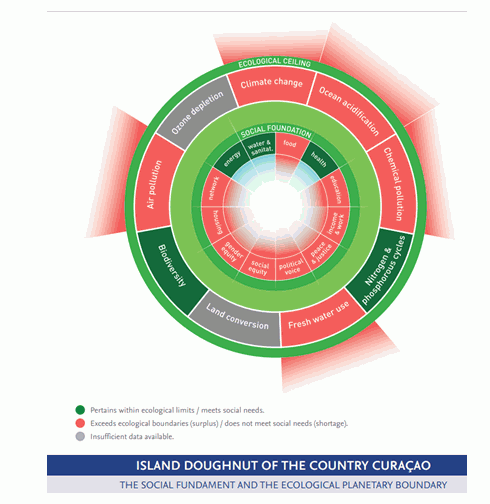Discover sustainable energy initiatives in Curaçao, promoting growth and environmental stewardship.
A Strategy for Sustainable Development
In 2016, the Council of Ministers of Curaçao ratified the National Development Plan 2015-2030, which focused on five priority areas: (1) Education, (2) Economy, (3) Sustainability, (4) National identity and (5) Good governance and leadership.
The National Development Plan 2015-2030 outlined 4 priority Sustainable Development Goals (SDGs), SDG 4: Quality Education; SDG 7: Affordable and Clean Energy; SDG 8: Decent Work and Economic Growth; and SDG 14: Life Under Water of the collection of 17 SDGs or Global Goals for Sustainable Development by the United Nations.
In 2018 five key areas were identified as accelerators for the implementation of the National Development Plan 2015-2030 and UN Agenda 2030 for Sustainable Development:
1. Inclusive, Sustainable Economic Growth
2. Environmental Sustainability
3. Improved Education System
4. Poverty Reduction
5. Youth Empowerment
Source: National Development Plan Curaçao 2015-2030
https://www.curacao2030.cw/sustainable-development-goals
Circular Economy for long term value
The traditional linear economy model has short-term revenue in mind and only focuses on profitability, circular economy is long term focused value centered. The circular economy is a system where materials never become waste and nature is regenerated. The basis of the circular economy is the sustainability and innovation of production processes, and the underlying business models.
In 2030 Curaçao will be able to respect the wellbeing of all people on earth, develop a climate-proof island and handle regulations in an innovative way. This will automatically attract investors
who drive sustainability and guarantee the prosperity of the Curaçao economy.
Source: Curaçao Doughnut Economy “A new compass for economic prosperity” (2021)
Why is it relevant?
Traditional economic performance does not lead to sustainable economic prosperity or a strong economy. The goal is to let both humans and the environment flourish.
The economy of Curaçao is in times of great change. Financial services, the oil refinery, tourism, trade and logistics were the stable pillars of the island’s economy until a few years ago. These pillars are in need of a more sustainable direction than previously designed. Moreover, changes such as those from the Coronavirus pandemic make it clear that the economic model of Curaçao needs a critical review.
Source: Curaçao Doughnut Economy “A new compass for economic prosperity” (2021)
Development of Sustainable Development & Circular Economy in Curaçao
The status of the Curaçao economy was analyzed based on principles of the doughnut economy developed by Kate Raworth. The doughnut economy combines technical, economic and social principles for a sustainable transition to a circular economy.
The doughnut model has been applied to the economy of Curaçao. The snapshot of Curaçao illustrates that there is still much work to be done to meet social needs and to stay within ecological limits.
The red indicators beaming inwards to the social fundament show which essential social needs the island is currently lacking. The red indicators beaming beyond the ecological ceiling highlight the current breach of ecological boundaries.
Five of the nine ecological indicators and nine of the twelve socio-economic indicators provide worrying insights. Curaçao lacks social foundation, and this has its impact on the climate.
Source: Curaçao Doughnut Economy “A new compass for economic prosperity” (2021)

What are the latest developments?
The Curaçao Doughnut Economy is a product of “Projectbureau Circulaire Economie” of the Ministry of Economic Development and was established in close cooperation with Curaçao Doughnut Economy Taskforce. It was accepted by the Council of Ministers March 24, 2021.
The purpose of the Curaçao Doughnut Economy document, besides an analysis of the status of the Curaçao economy based on principles of the doughnut economy, was to provide an integrated agenda for economic investment. The latter, partially based on input from the community.
Curaçao Doughnut Economy Taskforce held workshops in different neighborhoods of Curaçao.
During the workshops, participants learned about the principles of the doughnut economy and brainstormed about the realization of circular economy in Curaçao. Curaçao has plenty of existing initiatives that are already making the island sustainable. Many of the ideas developed during the workshops are related to socio-economic reform and focus on community building and education. On an ecological level, the focus is on sustainable water consumption and agriculture.
Source: Curaçao Doughnut Economy “A new compass for economic prosperity” (2021)